Facebook Workplace hits 7 million paid subscribers
The social network's enterprise comms platform still lags behind the likes of Microsoft Teams and Slack
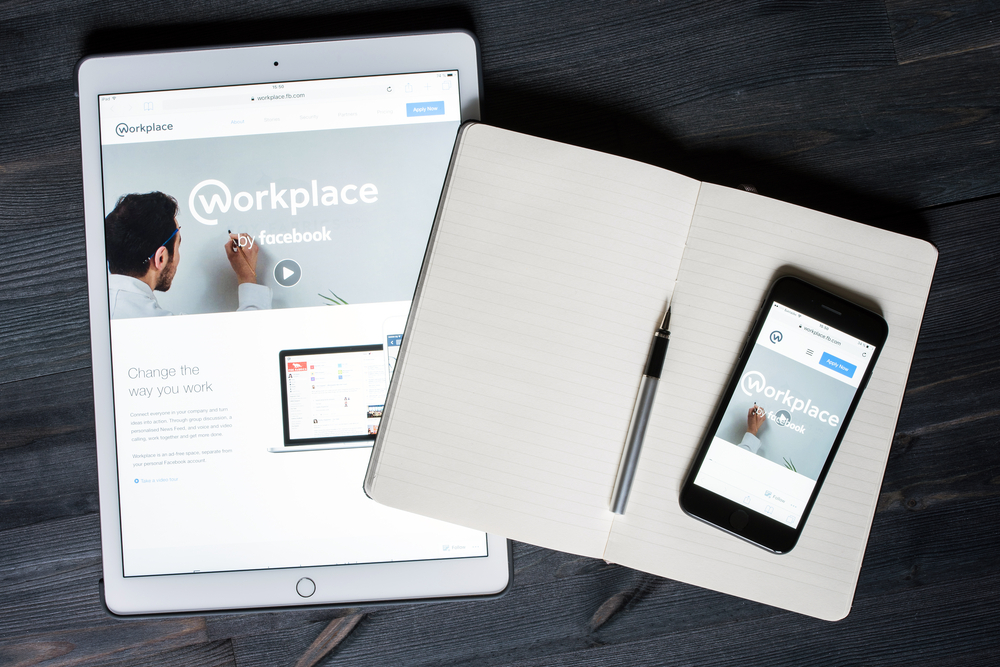

Facebook's enterprise communications platform, Workplace, now has seven million paid subscribers, representing a 40% increase year-on-year.
Launched in 2016, Workplace has traditionally been one of Facebook's lowest-earning business units, often counted alongside the likes of Oculus and Portal under the "other" section of its financial results.
However, its steady growth and brand association has helped it secure some high profile customers, including the likes of Spotify and Starbucks - although it still lags behind market rivals Slack and Microsoft Teams.
"We built Workplace as an internal version of Facebook to run our own company, and it was so useful we started letting other organisations use it too, including everyone from Spotify to Starbucks to the World Health Organisation," CEO Mark Zuckerberg said in a Facebook post on Tuesday. "More companies are starting to use our virtual reality tools for work as well, and I'm excited to build more new ways for people to work together that weren't possible before."
Microsoft Teams revealed last month that it has surpassed 145 million daily active users - a yearly increase of 93%. Slack no longer reveals user numbers but, as of September 2019, the company recorded 12 million daily active users, almost double that of Facebook's Workplace.
As it looks to continue increasing users, Workplace has also announced a few new features, such as a live Q&A function and an integration with Microsoft 365 and Google G Suite's calendar. There are also 'diversity-focused' updates, such as emojis with different skin tones and a service that allows users to show their colleagues the correct way to pronounce their name.
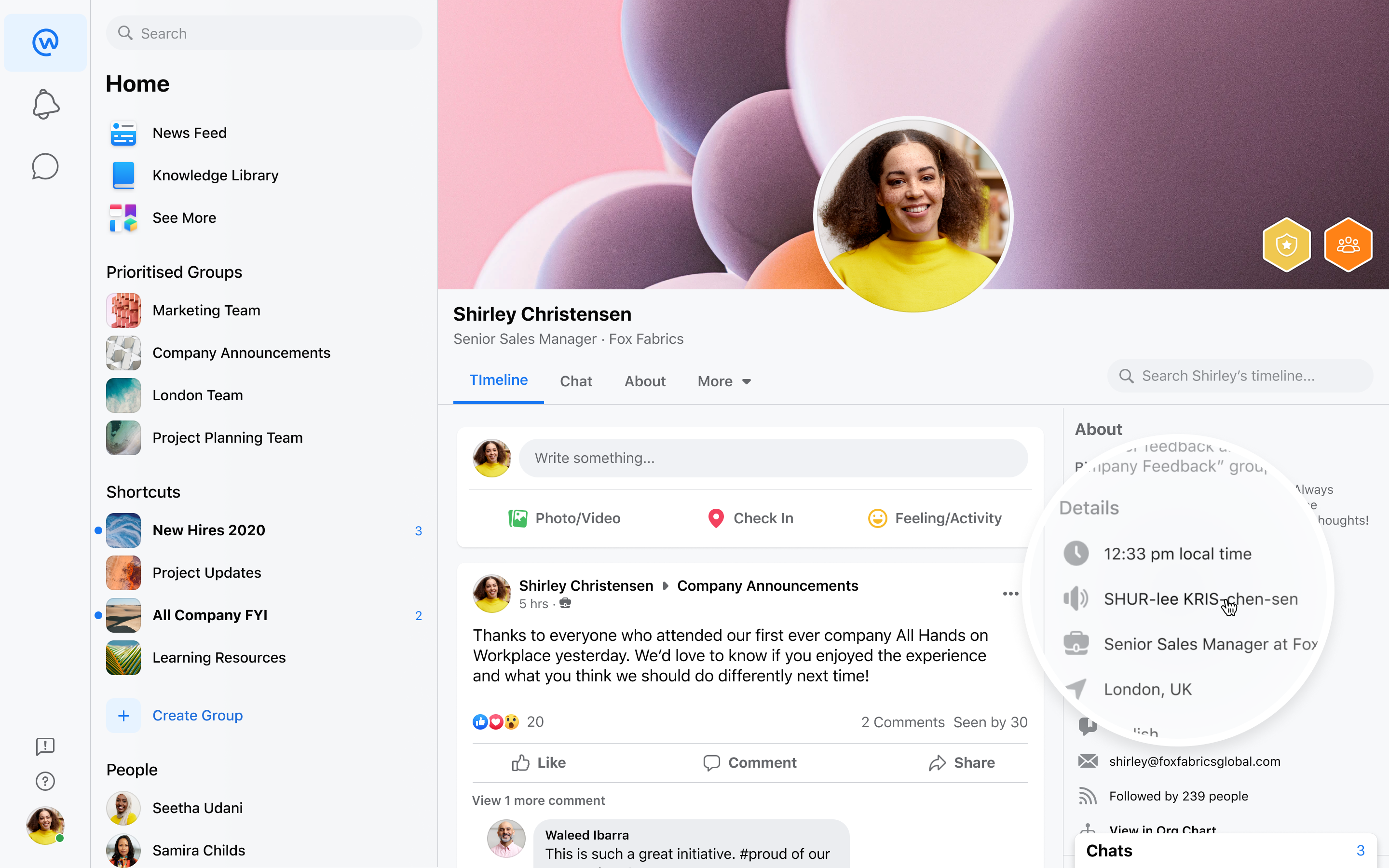
The feature offers phonetic spellings.
Get the ITPro daily newsletter
Sign up today and you will receive a free copy of our Future Focus 2025 report - the leading guidance on AI, cybersecurity and other IT challenges as per 700+ senior executives
Bobby Hellard is ITPro's Reviews Editor and has worked on CloudPro and ChannelPro since 2018. In his time at ITPro, Bobby has covered stories for all the major technology companies, such as Apple, Microsoft, Amazon and Facebook, and regularly attends industry-leading events such as AWS Re:Invent and Google Cloud Next.
Bobby mainly covers hardware reviews, but you will also recognize him as the face of many of our video reviews of laptops and smartphones.
-
 Bigger salaries, more burnout: Is the CISO role in crisis?
Bigger salaries, more burnout: Is the CISO role in crisis?In-depth CISOs are more stressed than ever before – but why is this and what can be done?
By Kate O'Flaherty Published
-
 Cheap cyber crime kits can be bought on the dark web for less than $25
Cheap cyber crime kits can be bought on the dark web for less than $25News Research from NordVPN shows phishing kits are now widely available on the dark web and via messaging apps like Telegram, and are often selling for less than $25.
By Emma Woollacott Published
-
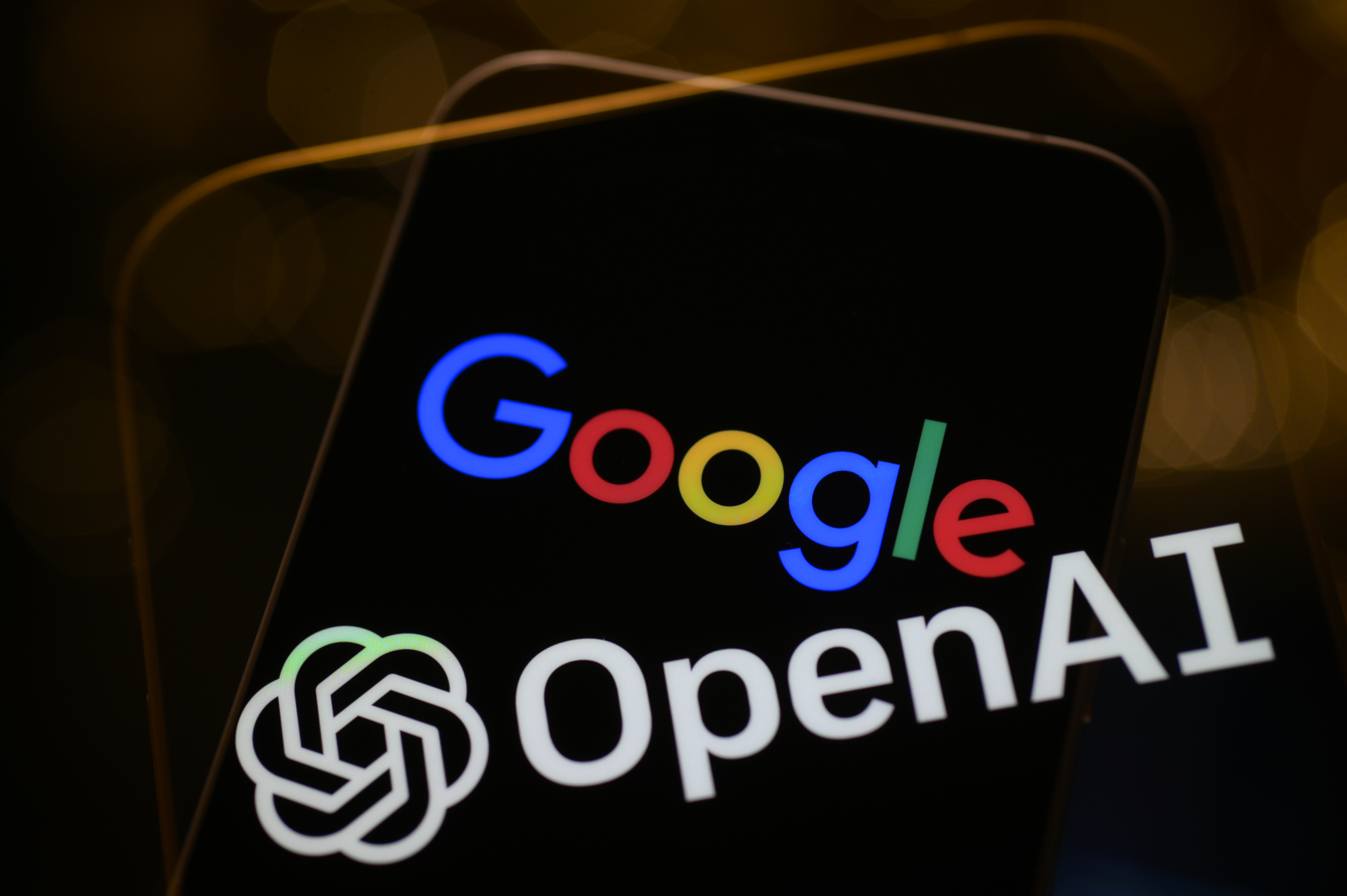 Big Tech AI alliance has ‘almost zero’ chance of achieving goals, expert says
Big Tech AI alliance has ‘almost zero’ chance of achieving goals, expert saysNews Companies like Microsoft, Google, and OpenAI all have competing objectives and approaches to openness, making true private-sector collaboration a serious challenge
By Rory Bathgate Published
-
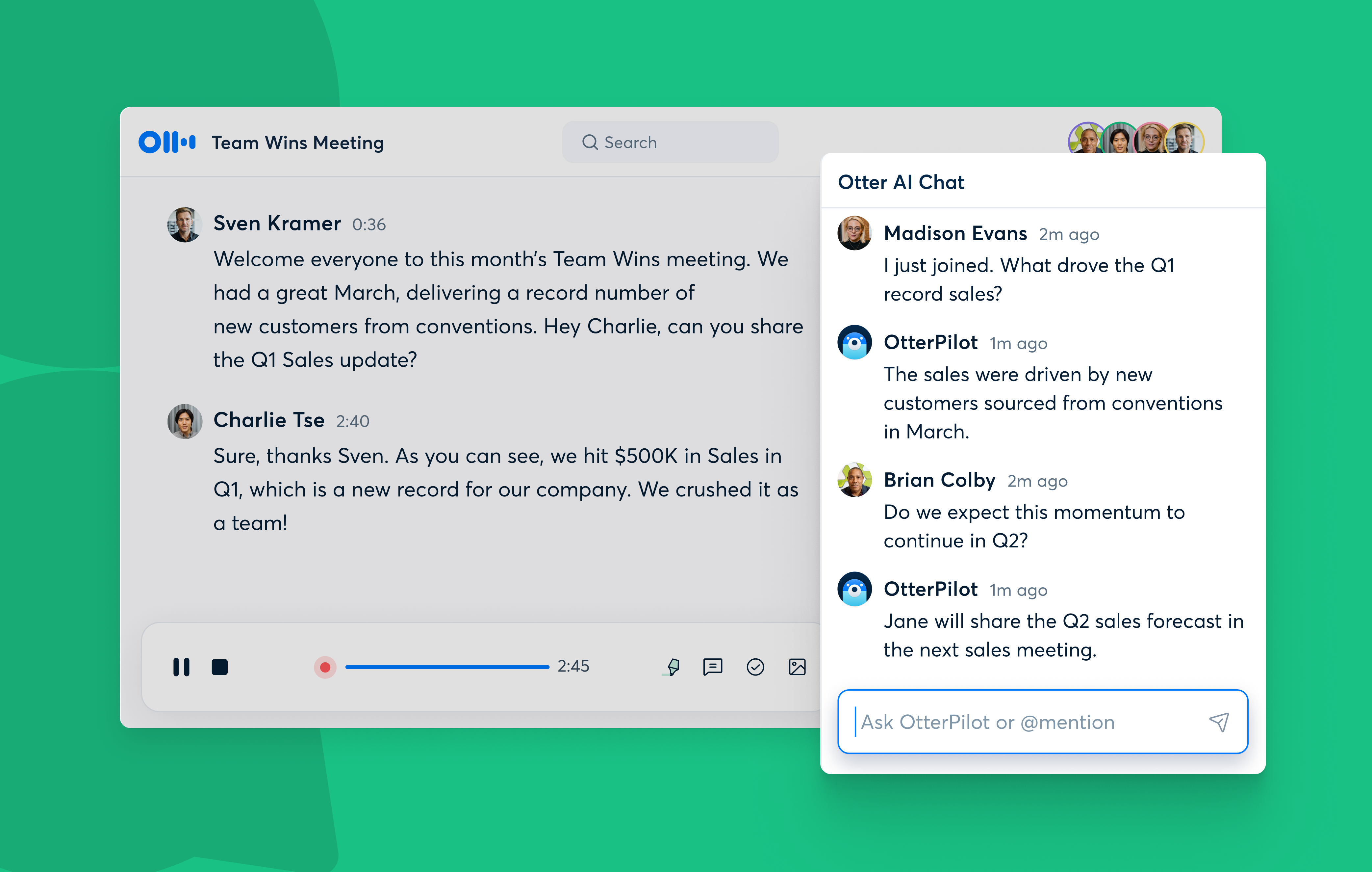 Otter.ai brings collaborative AI to meetings with Otter AI Chat
Otter.ai brings collaborative AI to meetings with Otter AI ChatNews The speech-to-text giant has set its sights on contextual AI
By Rory Bathgate Published
-
 Slack says automation can save every employee a month of work per year
Slack says automation can save every employee a month of work per yearNews Research from Slack found that workers believe generative AI tools will revolutionize productivity
By Ross Kelly Published
-
 Generative AI has left the metaverse in the dust
Generative AI has left the metaverse in the dustOpinion Generative AI demonstrating tonnes of business use cases only serves to highlight the hopelessness of the metaverse
By Rory Bathgate Published
-
 Meta to pay $725 million in Cambridge Analytica lawsuit settlement
Meta to pay $725 million in Cambridge Analytica lawsuit settlementNews The settlement closes the long-running lawsuit into how Facebook's owner, Meta, handled the Cambridge Analytica scandal
By Ross Kelly Published
-
 Meta's earnings are 'cause for concern' and 2023 looks even bleaker
Meta's earnings are 'cause for concern' and 2023 looks even bleakerAnalysis Calls for investor faith in metaverse tech only emphasise the worries that its investment strategy won't pay off
By Rory Bathgate Published
-
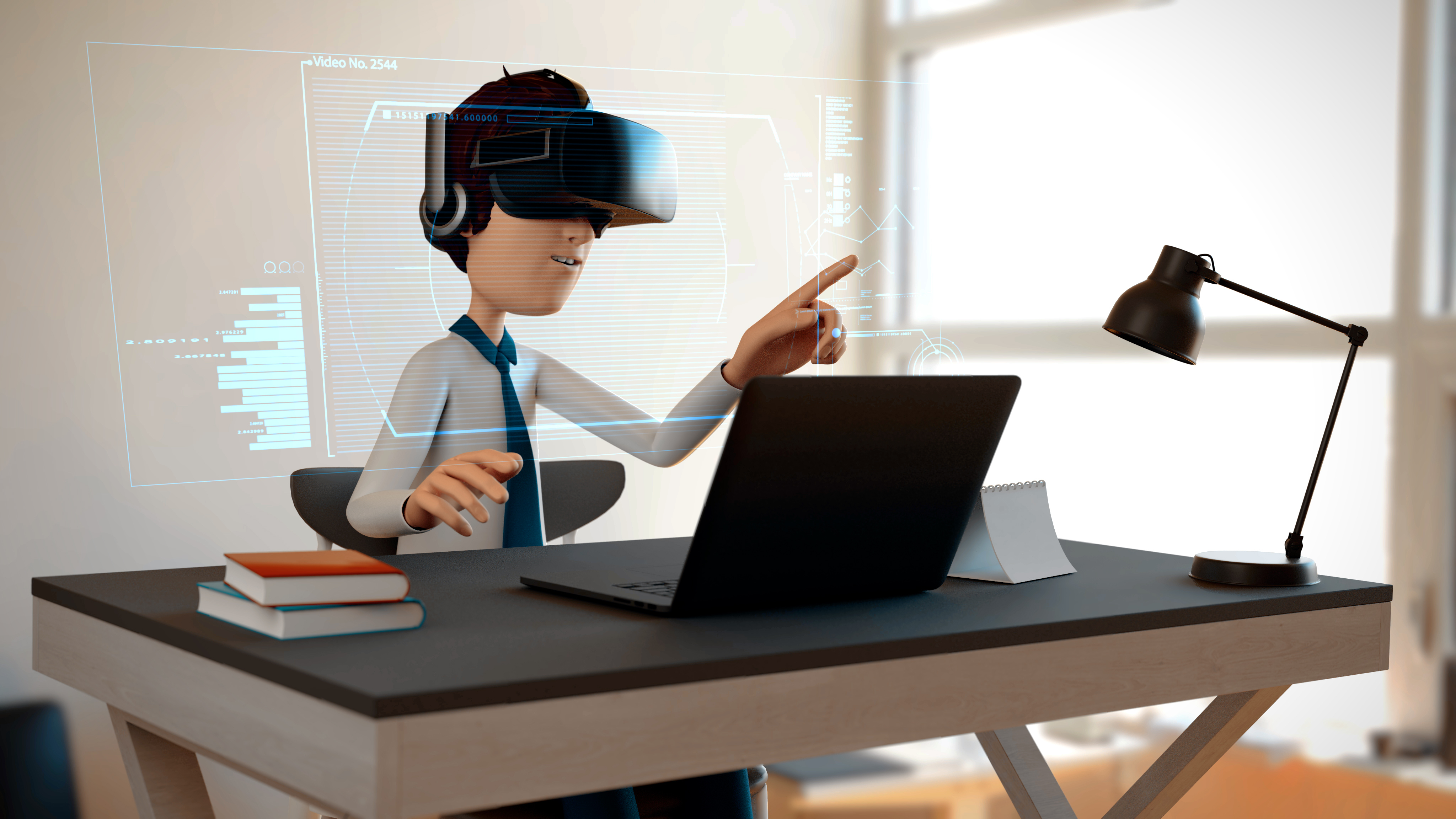 Seven steps to keeping metaverse meetings safe and secure
Seven steps to keeping metaverse meetings safe and secureIn-depth There are practical measures you can take to keep virtual meetings productive, safe and ethical as your team embraces VR-powered spaces
By Charles Radclyffe Published
-
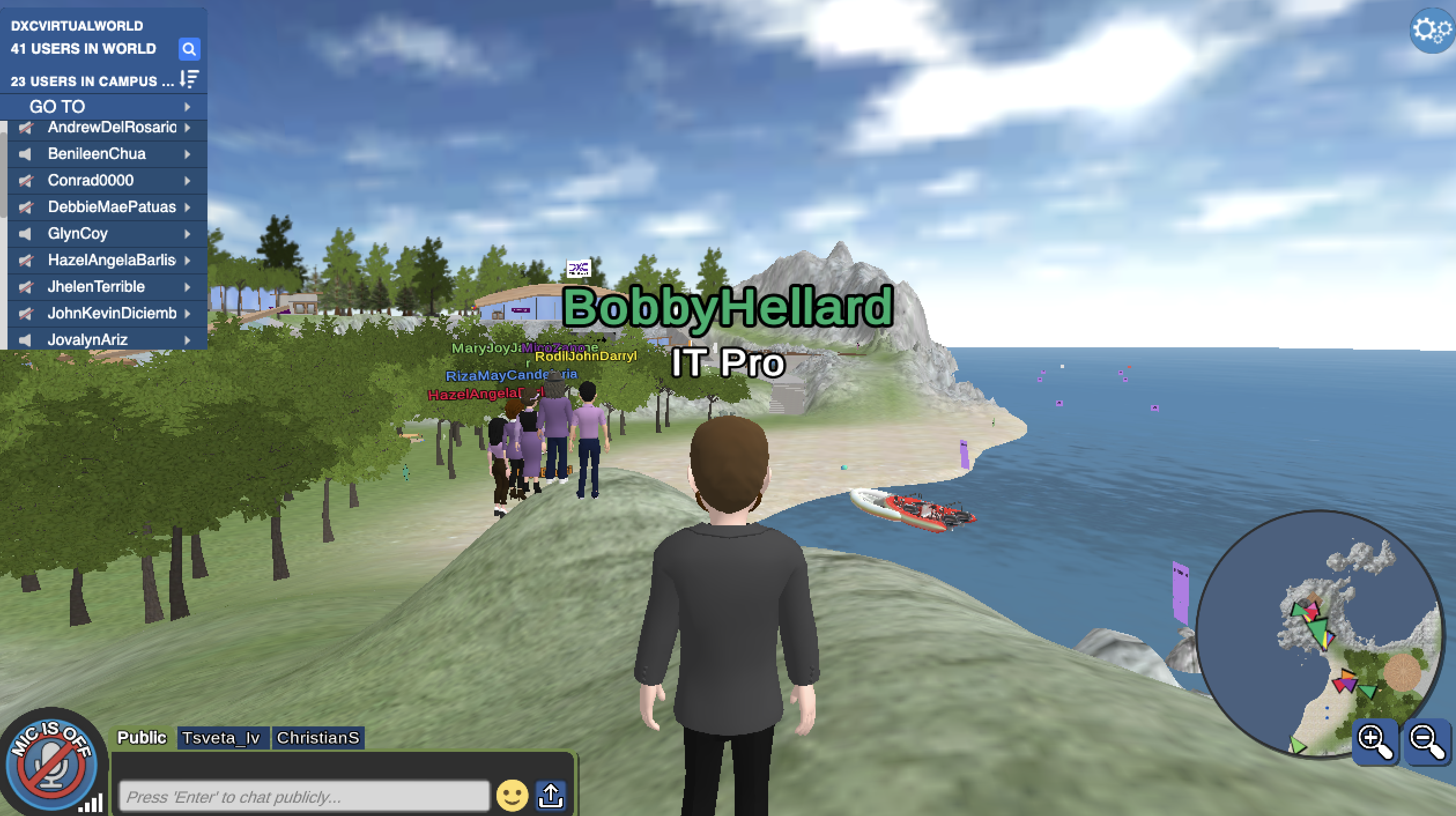 Into the metaverse: Everything we learned from our virtual tour
Into the metaverse: Everything we learned from our virtual tourOpinion Constant distractions – and not much collaboration – make it hard to see the business use cases
By Bobby Hellard Published